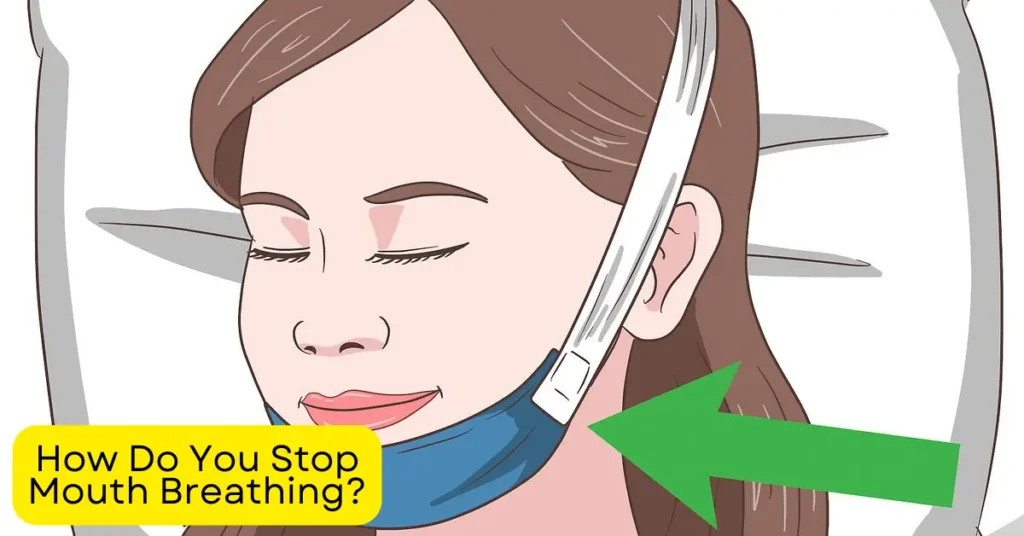What is mouth breathing?
People sometimes breathe just through their mouths. Mouth breathing is the term for this. Usually, mouth breathing is only required when nasal congestion from a cold or allergies prevents you from breathing through your nose. Additionally, breathing through your lips helps speed up the delivery of oxygen to your muscles during intense exercise.
How Do You Stop Mouth Breathing?
Healthy people typically use their mouths when necessary to breathe, such as during cold or allergy seasons when airflow through these channels is reduced. However, using one’s mouth excessively can be dangerous, especially when sleeping, as children may not always have enough protection against respiratory illnesses like pneumonia because they are not as adept at coughing as adults are at protecting themselves at night.
Read More – How To Apply For Free Tablet From Government In 2024
To get the most out of your oxygen supply, you must start each breath with your nose. However, there are usually negative consequences for those who use their mouths to gasp for air. The blood’s oxygen content stays significantly lower than that of nose-breathers. Suggested Ways for Stopping Mouth Breathing:
1. Mouth Taping
In order to prevent snoring and improve nasal breathing, some professionals advise using mouth tape. Taping the mouth shut or covering it with a soft patch at night is known as mouth taping.
There aren’t many studies on mouth tape, but one little study found that using a soft patch over the mouth while sleeping reduced participants’ snoring, daytime tiredness, and breathing disturbances.
2. Practice
Breathe through your nostrils and release through your mouth. It’s unlikely that your lack of awareness of breathing techniques is what has prevented you from breathing appropriately. More likely, all you’ll need to do is practice and stay mindful.
3. Clearing Nose Blockage
Although it may appear obvious, a lot of people breathe through their mouths due to blocked noses. You can remove blockages from your nasal canal by blowing your nose or using a nasal wash.
4. Sleep Position
Changing the way you sleep could help stop mouth breathing by opening your nasal airway. For some OSA sufferers, sleeping on their side or upright may help clear their airways.
For those who struggle to sleep on their sides or upright, supportive pillows, customized backpacks, body position sensors with alarms, or tennis balls fastened to the back may be of assistance.
5. Stress
People breathe more quickly when they are under stress. In stressful conditions, you are more likely to breathe deeply through your mouth. Although you might need to visit a doctor or adjust your surroundings, lowering stress can help your breathing.
6. Surgery
In order to treat their medical concerns, some persons who suffer from serious difficulties from increased mouth breathing may require surgery. When large nasal polyps obstruct the airway, surgical removal is required. Swollen adenoids in children usually do not require treatment, but if they cause severe symptoms, some doctors may advise having them removed.
Read More – Kung Fu Panda 4’s Post Credits
What causes mouth breathing?
A clogged or restricted nasal passage is the most frequent cause of mouth breathing. It stops air from easily entering the nose through the nostrils. When this occurs, your body instinctively turns to your mouth, the other source of oxygen.
Enlarged adenoids: Adenoids are tissue lumps that resemble tiny lumps over the roof of the mouth and behind the nose. Young children are shielded from viruses and bacteria by adenoids. Adenoids can occasionally swell or get infected, obstructing children’s airways. Adults with big adenoids are less likely to breathe via their mouths since adenoids normally diminish with age.
Nasal congestion: You may experience a chronically stuffy nose that prevents you from breathing through your nose if you have allergies, colds, or chronic sinusitis.
Deviated septum: The bone and cartilage that separates the inside of your nose into two sections is called the septum. Your airway may get obstructed by a tilted lower lip.
Conclusion
The nose is an interesting organ that deserves to be studied more. It heats cold air before we breathe it into our lungs, serves as an air filter, traps tiny airborne particles like pollen, and supplements moisture to the lungs and bronchial tubes as needed. Additionally, the nose increases resistance to absorbed breath, which makes breathing harder. However, this is beneficial to our health since it increases oxygen intake, which builds lung elasticity.
